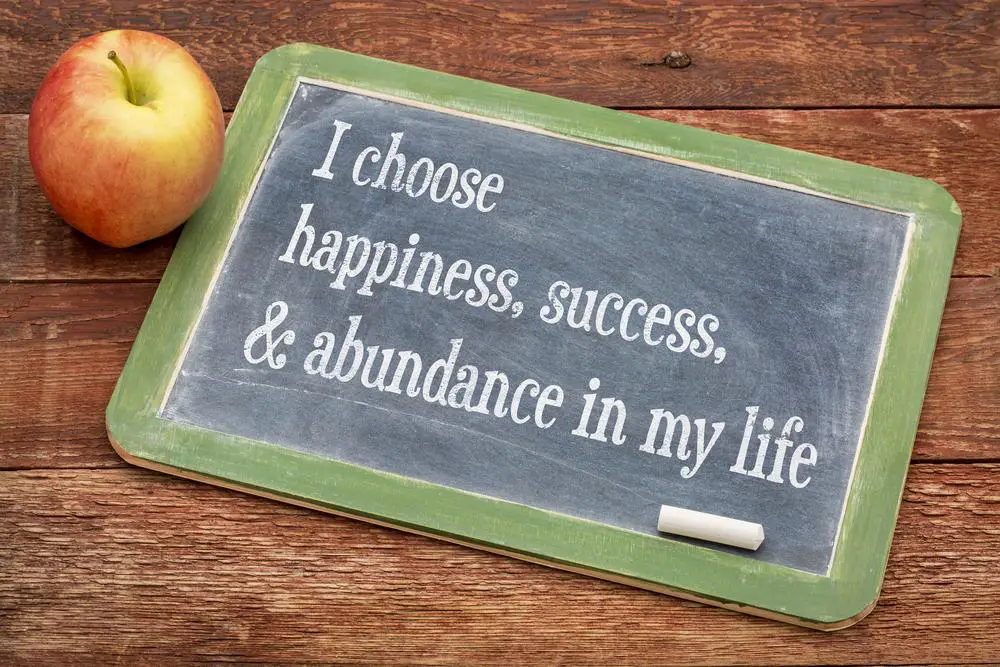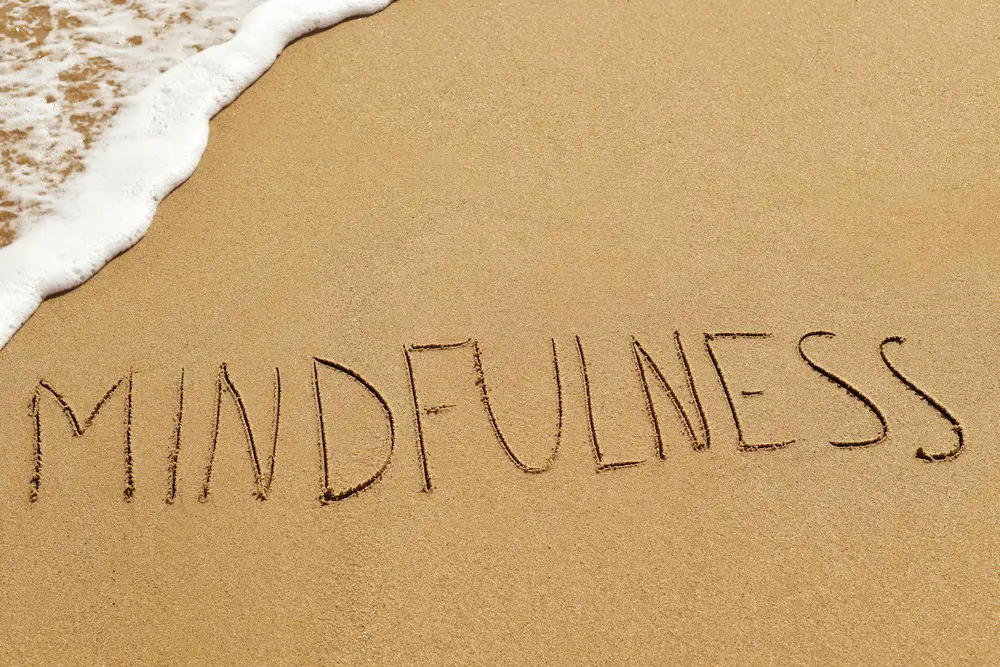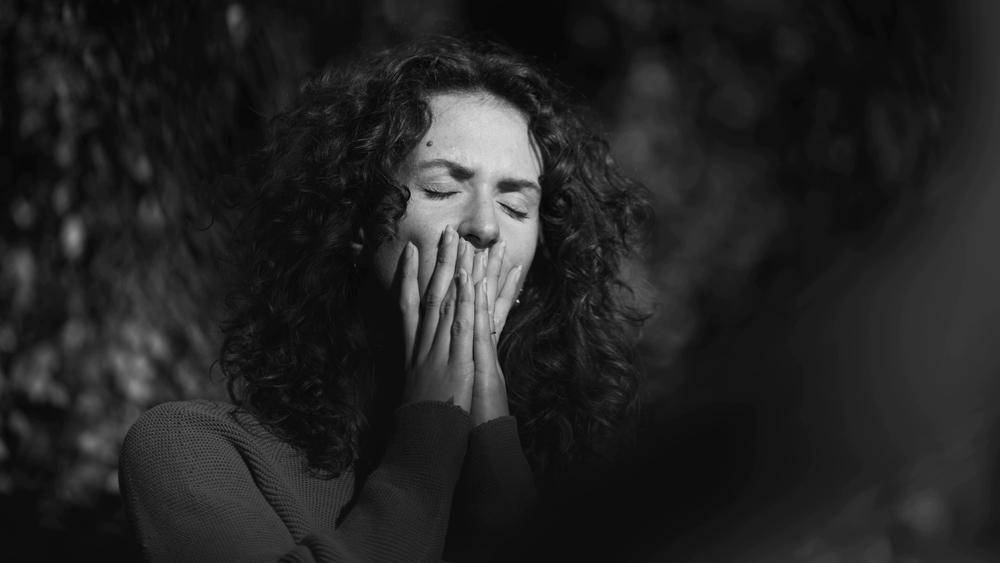As a BetterHelp affiliate, we receive compensation from BetterHelp if you purchase products or services through the links provided
Prolonged excessive worry is a natural reaction to uncertainty, also called anxiety. Everyone can feel anxiety at times, sometimes lasting for a moment and others for days. Unfortunately, it can disrupt your overall well-being, disturbing your daily life and relationships.
Anxiety has emotional and physical side effects. Therefore, it’s common to feel irritable, restless, and tired while also feeling an increased heart rate, shaking, and excessive sweating. These are just a few examples of anxiety symptoms.
Even though anxiety is quite debilitating, there are quick and effective techniques to reduce it quickly. Here’s how to reduce anxiety immediately:
Deep Breathing Techniques
One of the most common symptoms of anxiety is shallow and rapid breathing. Unfortunately, breathing like this does not help to calm your symptoms but increases them and can trigger a panic attack. When looking at how to reduce anxiety immediately, one of the most effective ways is using deep breathing techniques.
Breathing exercises are easy to learn. Here are two to try:
4-7-8 Breathing
You can practice the 4-7-8 breathing technique anywhere. Follow these steps:
- Inhale deeply through your nose, counting to 4
- Now, hold your breath while counting to 7
- Slowly exhale through the how mouth while counting to 8
- Repeat the steps until you feel more relaxed.
Box Breathing
Box breathing is a deep breathing technique often called 4-count or square breathing. Follow these steps:
- Slowly inhale to the count of 4
- Hold your breath to 4 counts
- Slowly exhale for 4 more counts
- Pause and repeat the cycle for as long as you need.
Calming Activities
Besides breathing techniques, here are some calming activities to help you when you need to find out how to reduce anxiety immediately.
- Create a soothing environment where you can enjoy calming activities that will help relieve your anxiety. Start by decluttering your space and providing a comfortable sitting or lying area. Set a calming mood using soft lighting and a diffuser with calming oils.
- Play soft music or try sounds from nature or a sound machine to help relieve your anxiety symptoms.
- According to WebMD, researchers have found benefits in using weighted blankets to relieve anxiety symptoms. Their weight prepares the body for rest thanks to the pressure that puts it into a “rest mode.”
Positive Affirmations

When looking to reduce anxiety immediately, positive affirmations have proven to be an excellent tool. They make you feel less threatened and increase your self-esteem. Use positive affirmations every day to build your psychological strength.
Some examples of positive affirmations to try:
- The symptoms of anxiety don’t define me, and I am not my anxiety.
- Right now, I am safe.
- I can control how I respond to trials and setbacks.
- My thoughts don’t control me. I control my thoughts.
- I’m not in danger; I feel temporarily uncomfortable, which will soon pass.
- I can let go of my negative thoughts and emotions.
- I am here because I deserve it and can be happy.
- Perfection is me being exactly as I am because I always do my best.
Mindfulness Exercises
 The racing thoughts caused by anxiety often make it hard to focus. Mindfulness exercise is an excellent way to focus on your feelings and control your anxious thoughts as you relax your mind. Combine mindfulness with breathing and guided imagery techniques to help reduce your stress at that moment.
The racing thoughts caused by anxiety often make it hard to focus. Mindfulness exercise is an excellent way to focus on your feelings and control your anxious thoughts as you relax your mind. Combine mindfulness with breathing and guided imagery techniques to help reduce your stress at that moment.
Some easy mindfulness techniques to practice include:
Focused Breathing – Choose a comfortable position and close your eyes. Slowly breathe in and out by deeply inhaling from the nose and exhaling from the mouth. The trick is to focus intensely on every breath.
Body Scan – Lie down in a quiet place and close your eyes. Scan your body slowly by starting at the head or toes and moving in the opposite direction. Focus on finding the parts of your body where you feel the most tension.
Eating Mindfully – Place a small piece of food into your mouth and move it around slowly as you focus on its taste, texture, smell, etc. Concentrate only on that food at that moment. Your thoughts could include where it was grown, its processing, what ingredients make up the food, etc.
Thought Control – Look around you and decide something you want to notice. Concentrate on finding it. Some examples include finding five things you can hear, three things you can smell, four things you can see, etc.
Quick Stress Relievers
When looking into how to reduce anxiety immediately, there are several steps you can take. Here are some of the most effective:
Stay Active
The benefits of exercise are undeniable. Healthline mentions a 2021 study that showed that people with physically active lifestyles lowered their chance of developing anxiety symptoms by 60%.
Whether you prefer yoga, Pilates, running, or high-intensity interval training, exercise has two benefits. Firstly, it diverts attention away from thoughts that may increase anxiety. Secondly, it increases heart rate and intensifies the brain chemicals or neurotransmitters that fight anxiety. These include serotonin gamma-aminobutyric acid (GABA) and endocannabinoids.
Limit Alcohol and Caffeine
Studies show a connection between alcohol consumption and anxiety and depression. It appears that drinking too much alcohol interferes with mood-regulating neurotransmitters. Alcohol also disrupts sleep, and less sleep increases your chances of suffering anxiety. There’s also a definite link between anxiety and alcohol use disorders. Therefore, it makes sense that the sooner you limit your alcohol intake, the sooner you’ll be able to benefit in terms of anxiety symptoms.
A recent review of several studies showed that caffeine increases anxiety and panic attacks in people, including those without panic disorder. Some people’s symptoms significantly improved when they stopped their caffeine habit. Moderate consumption appears safe for most people, but gradually reduce your intake to cut it out completely.
Stop Smoking
Using nicotine significantly increases anxiety symptoms. One study showed that these symptoms improved significantly when respondents stopped smoking. Therefore, stop smoking and chew some gum instead.
Get a Good Night’s Rest
The body needs at least 7 hours of sleep daily, but one survey of 400,000 people indicated that a third get less than six hours.
Some of the biggest culprits that disrupt sleep include eating large meals, drinking alcohol or caffeine, smoking, and overstimulation from watching TV, reading, or using electronic devices before bedtime. The best way to improve your sleep is to avoid all of those mentioned above, sleep when you are tired, get into the routine of sleeping at the same time nightly, and keep your room comfortable (dark and cool). Writing your thoughts before sleeping is also an excellent way to improve your sleep.
Improve Your Diet
Your eating habits could cause your anxiety, leading to low blood sugar levels and dehydration. Additionally, chemicals in processed foods may affect your mood, as can a diet high in sugar.
Therefore, if you notice your anxiety worsens after eating, it means you aren’t paying attention to your nutritional needs. Your diet should include complex carbohydrates, lean proteins, fruits, and vegetables. Don’t forget to stay hydrated!
Natural Remedies
Exercise, meditation, breathing, and personal care can all help you to find relief from the symptoms of anxiety. Doctors may prescribe medication, but only if the anxiety symptoms are severe. However, if you want to know how to reduce anxiety immediately, here are some natural remedies that can help:
Herbal Remedies
Herbal remedies like lavender, lemon balm, chamomile, kava, and passionflower are some that you can either drink as an herbal tea or take as a supplement. Studies are still limited, but these herbs do show promising results for general anxiety symptoms. Researchers from one study suggest that the activity of apigenin, a flavonoid found in chamomile, may result in its anti-anxiety properties. It appears to engage GABA receptors at the same binding sites that drugs like Xanax target.
Aromatherapy
The scents of some essential oils used in aromatherapy can help improve your health and overall well-being by boosting your mood, reducing anxiety, and helping you relax.
Either burn the scents in a diffuser or put a few drops on a lava bead bracelet. If you want to wear the essential oil on you, mix it with a carrier oil before patting it on your neck or wrist.
The scents known for their anxiety-relieving effects include lavender, grapefruit, ylang-ylang, bergamot, and clary sage.
CBD Oil
CBD oil has shown promising results with many ailments in initial studies, including inflammation, pain relief, insomnia, and anxiety. It’s derived from hemp, but it contains a tiny amount (<0,3%) or no THC, unlike marijuana-derived CBD.
Available products containing CBD oil include liquid tinctures, gummies, and topical creams.
Relaxation Techniques
When looking at how to reduce anxiety immediately, then progressive muscle relaxation is a technique that can help. The idea behind it is the natural connection between the mind and body.
Do the following:
- Find a quiet area to practice.
- Tightly tense up one muscle group as stiffly as possible without discomfort.
- Hold for 5 seconds.
- Release the pressure quickly and fully relax the whole body, including the muscle group you just worked.
- Repeat these steps with all the other muscle groups, working one at a time until your whole body feels relaxed.
Restorative yoga is another technique focusing on body relaxation and winding down by freeing the mind.
Self-Care Tips
 Self-care is essential for reducing anxiety levels. It’s important to set time aside to practice self-care. Therefore, take the time to practice some yoga, go for an outdoor walk, get a massage, or take a long bath. The lower your levels of self-care, the higher your chances of suffering from stress, burnout, and anxiety.
Self-care is essential for reducing anxiety levels. It’s important to set time aside to practice self-care. Therefore, take the time to practice some yoga, go for an outdoor walk, get a massage, or take a long bath. The lower your levels of self-care, the higher your chances of suffering from stress, burnout, and anxiety.
You can follow the quick and effective techniques above when looking at how to reduce anxiety immediately. Also, take the time to create a healthy routine that will improve your lifestyle, including eating healthy and getting enough sleep. These are some examples of things that can increase your happiness and eliminate excessive worrying.
Beyond Immediate Relief: Understanding When to Seek Professional Help for Anxiety
 After exploring a comprehensive toolkit—from deep breathing techniques to relaxation practices designed to reduce anxiety swiftly—it’s vital to recognize when these strategies must be complemented with professional support. This final section serves as your guide to identifying the signs that it’s time to consider therapy or medication, setting actionable goals for your treatment, and recognizing the milestones on your journey toward overcoming anxiety.
After exploring a comprehensive toolkit—from deep breathing techniques to relaxation practices designed to reduce anxiety swiftly—it’s vital to recognize when these strategies must be complemented with professional support. This final section serves as your guide to identifying the signs that it’s time to consider therapy or medication, setting actionable goals for your treatment, and recognizing the milestones on your journey toward overcoming anxiety.
Identifying the Need for Professional Intervention
While the strategies outlined in this blog post can offer quick relief in moments of anxiety, there are instances when professional help is crucial for long-term management. Look out for these indicators that suggest a deeper intervention might be necessary:
- Persistent Anxiety: If feelings of anxiety are constant, overwhelming, and not alleviated by short-term coping strategies.
- Interference with Daily Life: When anxiety disrupts your ability to perform daily tasks, maintain relationships, or fulfill responsibilities at work or home.
- Physical Symptoms: Experiencing severe physical symptoms of anxiety, such as panic attacks, that cannot be managed through self-help techniques alone.
- Emotional Turmoil: Feeling hopeless, depressed, or having thoughts of self-harm alongside anxiety symptoms.
Deciding Between Therapy and Medication
The choice between therapy, medication, or a combination of both is deeply personal and should be made based on your unique situation and needs:
- Therapy: Particularly effective for individuals seeking to understand the root causes of their anxiety and develop long-term coping mechanisms. Techniques such as cognitive-behavioral therapy (CBT) can offer profound insights and strategies for managing anxiety.
- Medication: May be recommended for those with severe anxiety that significantly impairs their daily life and is not sufficiently managed through therapy alone. Medication can provide symptom relief that allows other treatments to be more effective.
Setting Goals for Your Anxiety Treatment
Having clear, achievable goals for your treatment can guide your path to managing anxiety effectively. Consider setting goals like:
- Understanding Your Anxiety: Gaining insight into the triggers and patterns of your anxiety.
- Developing Coping Strategies: Building a set of personalized tools and techniques to manage anxiety symptoms.
- Improving Daily Functioning: Enhancing your ability to perform daily tasks and engage in social activities without anxiety.
Recognizing Your Progress
Acknowledging the progress you make is crucial for sustaining motivation and continuing to build on your successes. Signs of progress in managing anxiety might include:
- Reduced Severity of Symptoms: Noticing a decrease in the intensity and frequency of anxiety episodes.
- Increased Coping Skills: Feeling more confident and effective in using your coping strategies during anxious moments.
- Enhanced Quality of Life: Experiencing a greater sense of well-being, improved relationships, and a more fulfilling daily routine.
In closing, while the immediate techniques for reducing anxiety are invaluable tools in your arsenal, recognizing when to seek additional support is vital to long-term wellness. By understanding the signs that professional help is needed, making informed decisions on therapy and medication, setting realistic goals, and acknowledging each step forward, you can navigate your way through anxiety with confidence and clarity. Remember, seeking help is a courageous step towards reclaiming control of your life and well-being.
- 7 Ideas to Help You Relax and Unwind on a Family Vacation - April 27, 2025
- How Having Cybersecurity Protection Helps You Relax - April 25, 2025
- 8 Reasons Why Spending Time Outside Calms You Down - April 25, 2025
This site contains affiliate links to products. We will receive a commission for purchases made through these links.



